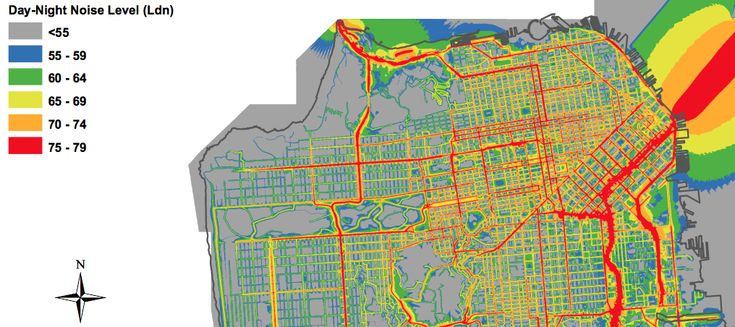Environmental noise is an often-overlooked factor that significantly impacts heart health. From traffic congestion to industrial activity and even loud music, prolonged exposure to noise pollution can have serious cardiovascular consequences. Studies have shown that excessive noise can contribute to high blood pressure, heart disease, and stroke by triggering physiological stress responses in the body. Understanding the link between environmental noise and heart health is crucial for adopting preventive measures and advocating for quieter, healthier living environments.
How Environmental Noise Affects the Heart
Noise pollution disrupts the body’s natural rhythms and triggers a stress response. When exposed to loud or persistent noise, the body’s nervous system activates a ‘fight or flight’ reaction, leading to increased levels of stress hormones like cortisol and adrenaline. These hormonal changes can cause:
Increased blood pressure – Persistent noise exposure has been linked to hypertension, a key risk factor for heart disease.
Elevated heart rate – Noise pollution can disrupt normal heart rhythms, increasing the risk of arrhythmias.
Chronic inflammation – Prolonged exposure to noise can cause low-grade inflammation, a known contributor to atherosclerosis (hardening of the arteries).
Disrupted sleep patterns – Poor sleep due to nighttime noise exposure has been associated with a higher risk of heart attacks and stroke.
Main Sources of Environmental Noise
Several common sources of environmental noise contribute to cardiovascular risks:
Traffic noise – Continuous exposure to vehicle noise, particularly in urban areas, has been linked to increased cases of heart disease and stroke.
Airplane noise – Studies indicate that living near airports can significantly raise the risk of hypertension and heart-related conditions.
Industrial noise – People working in loud industrial settings or living near factories may be at greater risk of developing cardiovascular issues.
Construction and urban noise – The constant buzz of construction projects and city life contributes to stress and heart-related complications.
Loud entertainment – High-decibel concerts, events, or even excessive use of headphones at high volume levels can contribute to long-term heart health risks.

Scientific Evidence Linking Noise Pollution to Heart Disease
Several studies have established a direct link between noise pollution and heart disease:
A study published in The Lancet found that individuals living near high-traffic areas have a significantly higher risk of hypertension and cardiovascular disease.
Research from the European Society of Cardiology suggests that noise pollution increases the risk of atrial fibrillation, an irregular heartbeat that can lead to stroke.
The World Health Organization (WHO) has identified environmental noise as a leading environmental risk factor for cardiovascular disease, estimating that long-term exposure to road traffic noise above 55 decibels (dB) can be harmful.
Preventive Measures to Protect Heart Health
While it may not be possible to eliminate environmental noise entirely, there are several steps individuals can take to reduce exposure and protect their heart health:
Soundproofing homes – Installing double-glazed windows, sound-absorbing curtains, or using white noise machines can help minimize external noise.
Wearing noise-canceling headphones – These can help reduce stress from loud environments, especially for those commuting in noisy cities.
Advocating for noise regulations – Supporting policies that enforce noise limits in residential areas can help create healthier living conditions.
Choosing quieter living areas – If possible, opting for homes away from major highways, airports, or industrial zones can lower exposure to noise pollution.
Practicing relaxation techniques – Meditation, deep breathing exercises, and spending time in quieter, green spaces can help counteract the effects of noise-induced stress.
Getting regular cardiovascular check-ups – Monitoring blood pressure and heart health regularly can help detect early signs of noise-related cardiovascular issues.
The Role of Urban Planning and Policy
Governments and urban planners have a critical role to play in reducing noise pollution and its impact on public health. Strategies that can be implemented include:
Creating noise barriers – Building soundproof walls along highways and railways to shield residential areas from excessive noise.
Enforcing stricter noise regulations – Limiting decibel levels in urban areas, especially at night, can help improve public health.
Promoting green spaces – Parks and tree-lined streets act as natural noise buffers and provide relaxation areas for residents.
Developing quieter transportation options – Encouraging the use of electric vehicles, improving public transportation, and implementing low-noise road surfaces can help reduce overall noise levels.

Conclusion
Environmental noise is more than just an annoyance—it poses a serious threat to heart health. With growing urbanization, noise pollution is becoming a widespread problem, affecting millions worldwide. By understanding its impact on cardiovascular health and taking proactive measures, individuals and policymakers can work together to create a quieter, healthier future. Whether through personal efforts like soundproofing homes or broader urban planning initiatives, reducing noise pollution is an essential step toward better heart health and overall well-being. If you feel any discomfort on your heart or problem, then get the consultation for the best cardiologist in Dubai.
For Your Information
- Why is heart disease the leading cause of death worldwide? Click here and learn some interesting facts.
- What Happens When Cholesterol is High? How to Manage It? read more and know some interesting solutions to that issue.
FAQs
How does noise pollution affect heart health?
It raises stress hormones, leading to high blood pressure, irregular heart rhythms, and increased heart disease risk.What are the main sources of environmental noise?
Traffic, airplanes, industrial activity, construction, and loud entertainment.Can long-term noise exposure cause heart disease?
Yes, studies link chronic noise exposure to hypertension, heart attacks, and stroke.How can individuals reduce noise pollution effects?
Use noise-canceling headphones, soundproof homes, practice relaxation, and get regular heart check-ups.What can governments do to reduce noise pollution?
Implement noise barriers, regulate urban noise levels, promote green spaces, and develop quieter transport options.